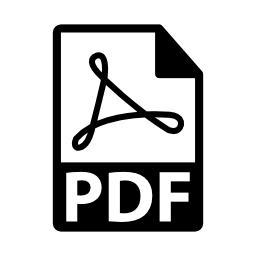August/September 2017 (vol. 14/2)
ContentsFeaturesNewsLegal
NewsResearch DigestResearch PlusCPD
 Personal Learning Zone in this issue
Personal Learning Zone in this issue
Summary:
FEATURED ARTICLES
This issue of Occupational Health [at Work] features a Personal Learning Zone (PLZ) article recommended for continuing professional development (CPD). The assignment questions, ‘personal learning statement’ and ‘Certificate of engagement’ are available to subscribers at AWPcpd. These will also be stored in your password-protected PLZ. The PLZ will help you document your own CPD. Occupational health physicians and nurses, occupational hygienists and other professionals can use the resource in support of their specialism’s revalidation or CPD requirements.
CPD article in this issue: Current practices in noise health surveillance – pages 31–35.
This PLZ feature examines noise health surveillance. More than a million UK workers are exposed to noise levels above 85dB(A), a level at which health surveillance is required under the Noise Regulations. HSE research reveals how employers can ensure better legal compliance and improved protection of workers’ hearing by improving the quality of noise health surveillance and the competence of those who undertake it.
Visit AWPcpd to see the CPD questions associated with this article.
ADDITIONAL CPD
The following articles, news and research items are suggested reading for CPD and professional revalidation. Subscribers can complete their online Personal Learning Zone CPD record at AWPcpd.
Page 12. An employer discriminated against a job applicant with Asperger’s syndrome by requiring her to complete a multiple-choice psychometric test, despite allowing her more time to complete it, the Employment Appeal Tribunal held. The case illustrates the importance of examining the particular needs of applicants when considering reasonable adjustments.
Page 13–18. There are few more distressing situations for healthcare professionals than being on the receiving end of a complaint – particularly when it results in an investigation by the regulator. This article explores the sources of support available to practitioners and what individuals might do to safeguard against vexatious complaints.
Pages 19–20. Healthcare professionals are already required to disclose certain information, regardless of consent, to the appropriate authority with respect to communicable diseases, female genital mutilation and terrorism. However, while OH professionals will appreciate that they may also have an ethical duty to disclose information where a patient refuses consent if there is a risk of serious harm to third parties, recent case law suggests there may even be a legal duty if an identifiable third party is at serious risk.
Pages 36–41. Our research compendium includes a systematic review that explored whether pre-placement screening of emergency services personnel is capable of identifying individuals at risk of future mental health problems. Screening on the basis of a previous psychopathology or history of trauma did not prove useful – but there was some evidence that physiological screening in response to simulated trauma, and identifying certain personality traits and lack of coping skills, might help identify those at greater risk.
Author: The At Work Partnership Ltd
Occupational Health at Work August/September 2017 (vol. 14/2) pp43


